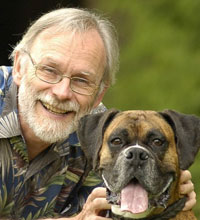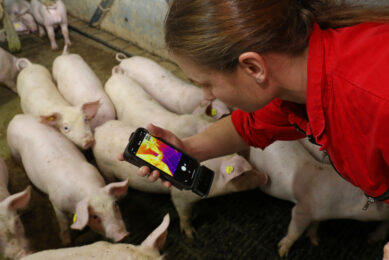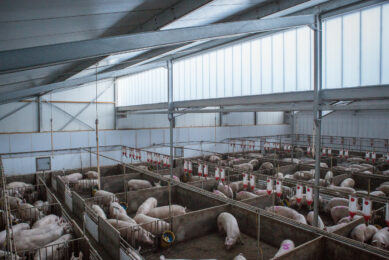Reflection on welfare is in producers’ own interest

Interview with Prof Dr David Fraser: The discipline of animal welfare is firmly rooted in science – anyone who believes the contrary is invited to come and listen to Prof Dr David Fraser during IPVS. His plea is clear: more discussion will clarify conflicts that still exist.
“I grew up on a farm, I identify with agriculture – I teach agriculture. I am very anxious to help the food production industries to take course of actions that are in their own long-term interest. And to prevent unnecessary conflicts between agriculture and other parts of society. We need to agree on solutions and timelines that are good for the animals and the industry.”
Prof Dr David Fraser, having a ‘home match’ in Vancouver being a lecturer in animal welfare at the University of British Columbia, will be looking for dialogue during this year’s edition of the IPVS Congress. Dialogue he hopes to establish between producers and society on one hand – and between society and veterinarians on the other. Both have different ideas and expectations about animal welfare. Mutual understanding can lead to workable solutions, he says. “We are currently seeing disruptive conflict between producers, especially those who use industrial systems, and critics, consumers and citizens who feel that these systems are exploiting animals in much the same way that the early factories exploited workers 200 years ago. I think animal welfare science, combined with dialogue, can lead to more constructive policy and better outcomes for all, including the animals.”
Welfare and science Fraser believes that animal welfare, just like any other discipline, deserves a place in the scientific approach to animal husbandry. “When the scientific study of animal production evolved into specific disciplines such as nutrition and genetics, some important parts of animal husbandry – especially how animals interact with people and environment – got left out of the scientific agenda. Animal welfare science is taking a second look at the missing pieces of animal husbandry and putting them on a scientific basis. It’s really a practical discipline in that respect.”
Fraser understands that the current focus on animal welfare may also lead to a re-think of veterinary practices. “We need a good dialogue to prevent two camps forming here. The critics of confinement agriculture think of animal welfare especially as ‘naturalness’; veterinarians and intensive producers think of animal welfare primarily in terms of health and productivity. And each side is tending to ignore the concerns of the other.
“So we have to find solutions that allow the animals to live in a sufficiently ‘natural’ way – to the degree that they really want to – but that also incorporate good disease prevention, treatment, protection from injuries, protection from harsh weather and so on. We need a dialogue between the industry and the critics, as a basis for sound policy and practices.”
Presentation
In his presentation, Fraser aims to address several developments in animal welfare and animal production. “What I propose to do is look back over the past 50 years – a period when attitudes towards animal welfare changed radically.
“And I want to stress the globalisation of these issues. Initially these were developed- country issues, mostly involving the European and English speaking countries. Recently we’ve seen the World Organization for Animal Health play a large role in global animal welfare standards, and the FAO and other international agencies are also becoming involved.
“Thirdly, I maintain that the growing concern about animals is rooted in science – specifically 300 years of research, first revealing the anatomical similarities between humans and other vertebrates, which became common knowledge around 1700, and then more recent research in animal cognition and emotion. As a result of the science, the gap that we perceive between ourselves and other species has been narrowed in a series of steps. “Then, finally, I want to talk about some of the current science being applied to animal welfare issues because it can help to put animal welfare standards on a solid basis.”











